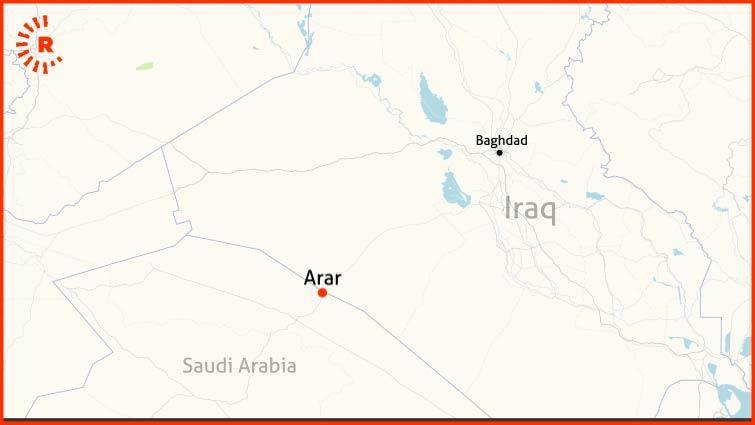Iraq


The fence separating Saudi Arabia and Iraq in the area around Arar city on the Saudi-Iraq border. Photo: AFP
prev
next
ERBIL, Kurdistan Region – Iraq will reopen a border crossing with Saudi Arabia for trade within a month after nearly three decades of closure, Iraq’s border crossing authority announced on Thursday.
Omer al-Waeli, head of the Iraqi border crossing department, told state media on Thursday that “the only step remaining” to reopen the Arar border crossing, located in Iraq’s Anbar province, is for Baghdad and Riyadh to settle on a date.
“Both sides [Iraq and Saudi Arabia] are ready to reopen the border crossing,” al-Waeli said. “Arar border crossing will be opened within a 14 to 20 days period.”
The Arar crossing closed in 1991, when relations between the two countries deteriorated after then-Iraqi president Saddam Hussein invaded Kuwait. Iraq-Saudi relations were further damaged under the tenure of former Prime Minister Nouri al-Maliki, who is accused of furthering Iran’s interests in the country.
Rapprochement between the two began in 2015, when Saudi Arabia reopened their Baghdad embassy after 25 years of closure.
A Saudi-Iraqi Coordination Council was established in October 2017 with the aim of strengthening relations between the two countries.
Vying for influence in the country over regional rival Iran, Saudi Arabia opened a separate consulate in Baghdad in April 2019 after a visit from a 100-person Saudi delegation, including nine ministers. Riyadh pledged $1.5 billion in loans to Iraq during the trip.
Former Iraqi Prime Minister Adil Abdul-Mahdi visited Saudi Arabia later that month, when the two countries signed 13 deals in the fields of political consultation, investment promotion and protection, agriculture, energy, electricity, and higher education.
The Arar border crossing currently opens once a year to allow Iraqi pilgrims entry to Saudi Arabia to perform the Islamic rite of Hajj.
Omer al-Waeli, head of the Iraqi border crossing department, told state media on Thursday that “the only step remaining” to reopen the Arar border crossing, located in Iraq’s Anbar province, is for Baghdad and Riyadh to settle on a date.
“Both sides [Iraq and Saudi Arabia] are ready to reopen the border crossing,” al-Waeli said. “Arar border crossing will be opened within a 14 to 20 days period.”
The Arar crossing closed in 1991, when relations between the two countries deteriorated after then-Iraqi president Saddam Hussein invaded Kuwait. Iraq-Saudi relations were further damaged under the tenure of former Prime Minister Nouri al-Maliki, who is accused of furthering Iran’s interests in the country.
Rapprochement between the two began in 2015, when Saudi Arabia reopened their Baghdad embassy after 25 years of closure.
A Saudi-Iraqi Coordination Council was established in October 2017 with the aim of strengthening relations between the two countries.
Vying for influence in the country over regional rival Iran, Saudi Arabia opened a separate consulate in Baghdad in April 2019 after a visit from a 100-person Saudi delegation, including nine ministers. Riyadh pledged $1.5 billion in loans to Iraq during the trip.
Former Iraqi Prime Minister Adil Abdul-Mahdi visited Saudi Arabia later that month, when the two countries signed 13 deals in the fields of political consultation, investment promotion and protection, agriculture, energy, electricity, and higher education.
The Arar border crossing currently opens once a year to allow Iraqi pilgrims entry to Saudi Arabia to perform the Islamic rite of Hajj.









Comments
Rudaw moderates all comments submitted on our website. We welcome comments which are relevant to the article and encourage further discussion about the issues that matter to you. We also welcome constructive criticism about Rudaw.
To be approved for publication, however, your comments must meet our community guidelines.
We will not tolerate the following: profanity, threats, personal attacks, vulgarity, abuse (such as sexism, racism, homophobia or xenophobia), or commercial or personal promotion.
Comments that do not meet our guidelines will be rejected. Comments are not edited – they are either approved or rejected.
Post a comment